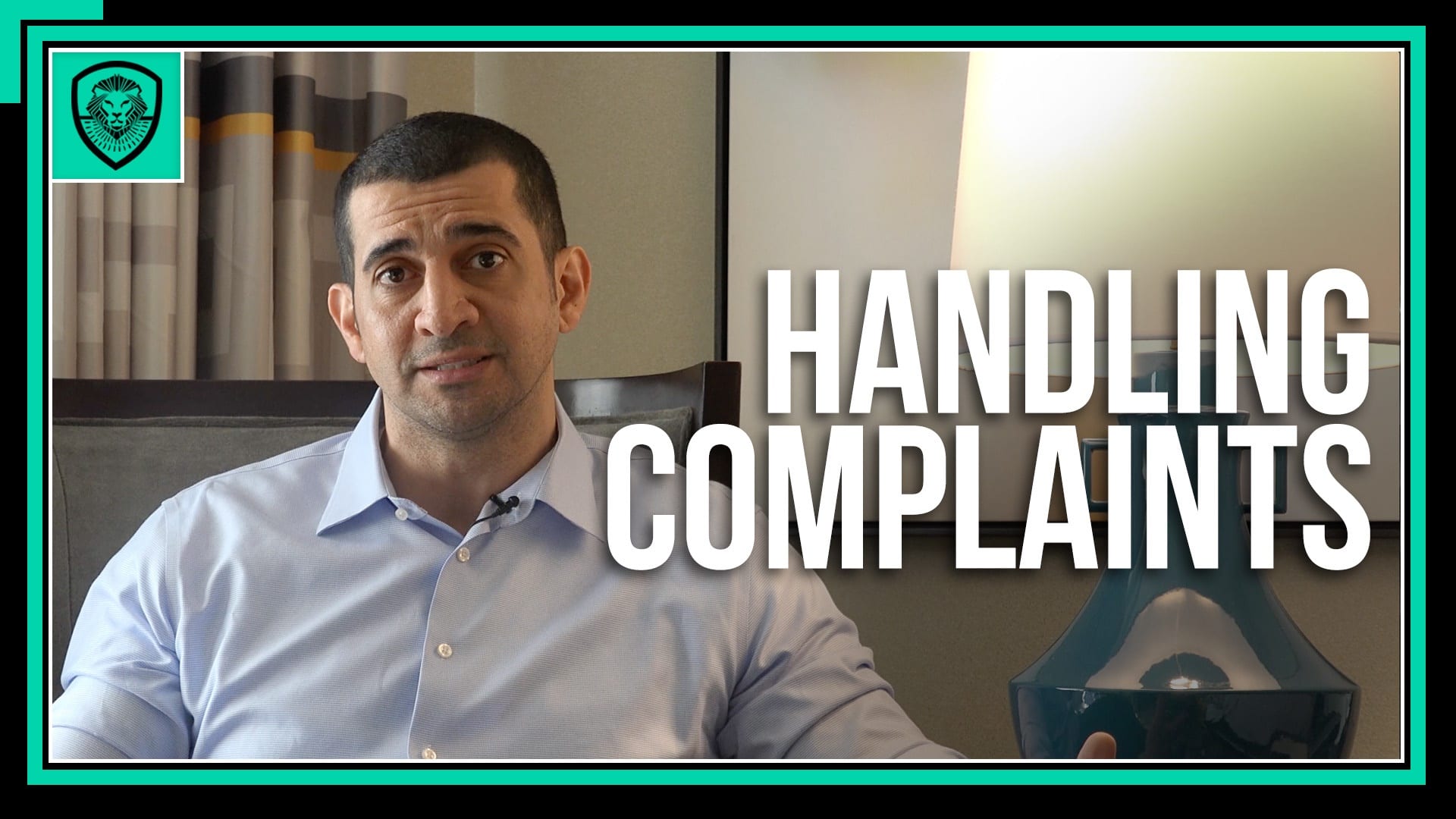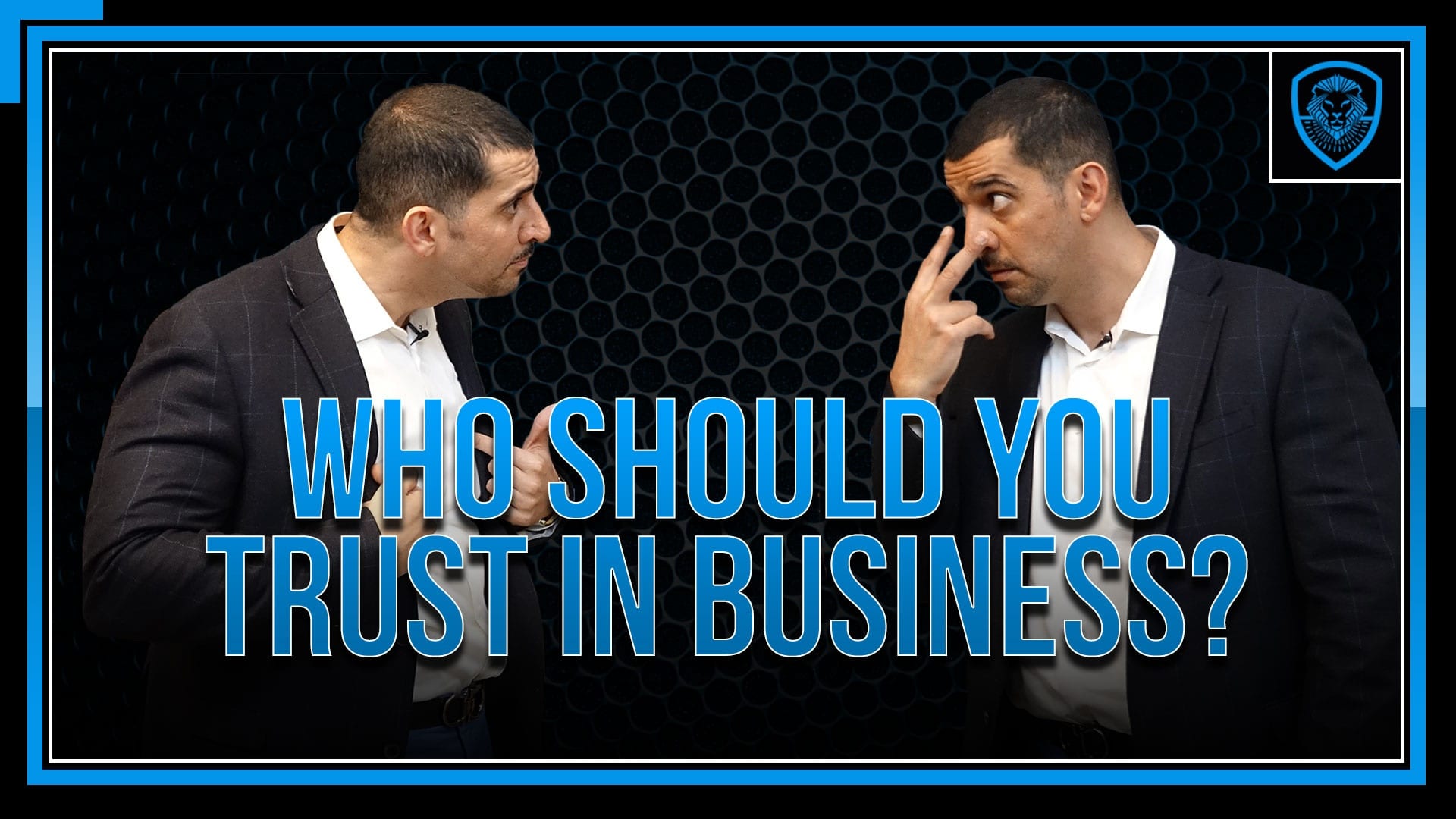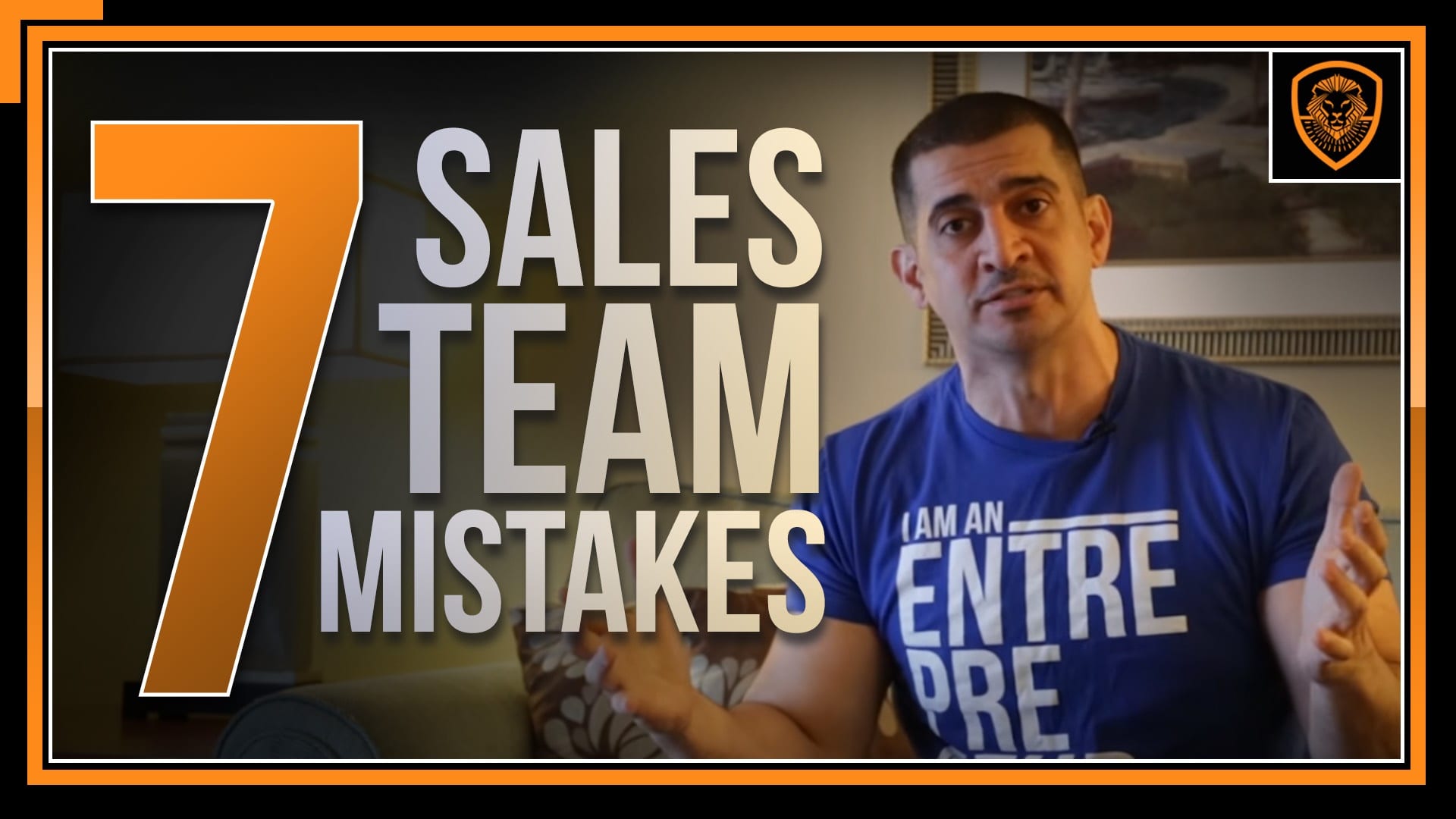I’m going to make a prediction. There’s little chance this article and video will go viral. Here’s why. Because no one cares to talk about customer complaints. But I want to challenge you to listen to this whole thing because it will save you a lot of sleepless nights, make and save you a lot of money, and create a culture for your company. So let’s get right into it.
Complaints are part of business. When you decide to become a business owner, you put yourself out there for customers to say that you’re not as good as your competitors. It’s your job to hear them out and get better. Complaints are free counsel people give you. Just think about it. Companies that do focus groups pay $75 per participant just to show up and complain about your product, and when people complain to you directly, you get it for free. So keep that in mind.
5 Types of Customer Complainers
Now let’s talk about how I look at complaints. No matter what you do, there are five types of customer complainers.
#1: The Valid Complainer
The number one type of complainer is the valid complainer. This is the person that’s right. You did something wrong. Your company didn’t do the right thing. When they complain, there’s a good reason, and you have to figure out how to improve.
#2: The Pessimist
Next is the pessimist. This is the person that no matter what you do, nothing can ever make them happy.
#3: Like Your Product, Disagree with Your Belief
Listen in here for a story about a complaining customer that liked my product, but disagreed with my belief.
#4: An Actual Enemy
The fourth type of complainer has become very big in business and is an actual enemy. What I mean by an actual enemy are competitors that aren’t happy that you take a percentage of their business away from them. You’re an enemy, a threat, to them. They don’t like you and want you to go out of business ASAP.
When we started a company, we tried to take distribution away from some folks. When I say distribution, I’m referring to the amount of life insurance written. That made a lot of people unhappy. So all of a sudden we were flooded with negative complaints online. A lot they said was inaccurate, but there was nothing we could do about it. The reason was that at the time, companies like Yelp based reviews on whether or not you spent $5,000 – $6,000 per month on advertising. (They have since changed their policy.) Many small companies were frightened and afraid they’d go out of business if they ended up with a three-star rating. It was a legal, online Mafia type of thing.
When this type of thing happens, you have to learn how to work around it. Eventually, you earn saint status and then these things don’t matter. But it takes five to ten years to earn saint status. Once you earn saint status, the positive experiences crush the negative ones. For instance, do you know how many negative comments Apple gets? And yet people still go to Apple.
#5: Trolls
The fifth and final type of customer complaints come from trolls. Nowadays there are trolls. This is a new thing because it’s a way for someone to get fame. People can mess with a company and get publicity. So it’s become a business. There are sites out there that tell you how to be a professional troll.
We get trolls sometimes on Valuetainment. I went to one troll’s Facebook profile and saw that his most recent post said, “I’m in the mood to go troll some bigger brands.” So I took a screenshot of his post and went at him pretty hard. We had some fun with it, and he deleted his comment.
So don’t take trolls too seriously.
How to Handle Customer Complaints
Now let’s talk about how to handle customer complaints.
First of all, depending on the type of business you run, your volume of sales dictates how many opportunities there are for people to complain. If you have a high volume of sales, there’s a greater likelihood of customer complaints. For example, if a guy takes 1,000 shots in basketball, and another guy comes in and takes only one shot, who has the higher likelihood of shooting an air ball? The guy shooting 1,000 shots is going to get some air balls. Air balls could be a misplay, or they could be something you have to address. But you have to understand the type of business you’re in and know if there’s a high volume of sales, you’re going to get more complaints.
So now let’s get into how you handle customer complaints when you get them. It’s very simple.
#1: Speed is Your Game
First, the most important thing to know before I tell you how to respond is that speed is your game. If the complaint happens on Tuesday, and you get back to them on Friday, it’s already too late. If the complaint happens on Tuesday at 3:00 in the afternoon and you have a system where you get back to them within a day, that’s better than Friday. But if you have a way to get back to them within an hour, it shows they matter to you. So speed is number one in the game of handling customer complaints.
#2: Don’t Avoid Conflict
Next, when it comes to handling complaints, I guarantee you that if you avoid conflict, you will constantly get complaints. I’m extremely suspicious of brands that block public complaints.
One time I sat down with a guy that said, “I turned off all my comments on YouTube.” He didn’t want people to see his low subscriber number and bad comments, so he turned those off.
I want to hear those bad comments because that’s how we find out where we need to improve. Valuetainers have told us things like the video sound only plays in one ear. I asked Paul how many times this has happened, and he said, “Too many.” So we have to figure that part out. People say things like, “Hey, you misspelled entrepreneur.” Great. We want to hear this stuff. I’m very suspicious of brands that hide all the negative comments. What are they hiding? And who cares about negative comments? No one’s perfect. So I want to hear what my audience has to say, so we can be held accountable and improve.
So don’t avoid conflict.
#3: You Can’t Win Them All
Next, you can’t win them all. That’s for sure.
#4: Get on the Phone
Next, I like phones. A lot of times people like to handle complaints with just email. That’s great and is one way to do it. But I love phones. I can’t tell you how many issues I’ve resolved in my life by simply picking up the phone, calling, asking what’s the problem. Just last week I got a very strange email from the CEO of a $40 billion company. I responded, “Hey, this is a strange email you sent me. How about we get on the phone to clear things up?” He agreed. We got on a call together and cleared things up because what he thought happened was totally inaccurate. Through the phone call, we got clarity. He went and investigated and said, “You’re right. This is exactly what happened.” So I like handling issues immediately with a phone call.
Here’s how to handle things once you get on the phone.
Acknowledge and Apologize
Be honest about what happened. Acknowledge it, and apologize.
Remain Calm
Next, remain calm. I can tell you, I’ve had many experiences where I haven’t remained calm. And by the way, in almost every case where I didn’t remain calm, it didn’t work in my favor. I’ve done that many times and had to learn to overcome it. Now sometimes this may be the fact that I don’t want that business anymore. It’s a way to say that I don’t want to do business with that person anymore. But it’s still not an excuse to handle people poorly because if you treat someone well, they tell three people. If you treat someone bad, they tell 11 people. People like to spread bad experiences more than good experiences. So hear people out and don’t be defensive.
Promise to Improve and Offer a Solution
Say something like, “Hey, John, obviously, I’m not happy about the fact that we made this mistake. As the leader, as the CEO, as the executive, as the VP of this department, as the [whatever], this falls on me. But I’m going to make a commitment to you. We’re going to get better at this.” Then offer a solution. Invite them to return for a second chance, and then follow up on the experience.
Listen, we’re forgiving. For most people that have valid complaints, we’re willing to get better. We like second chances. But you have to do your part and pay attention to details because there are two different things when it comes down to complaints.
Short and Long-Term Problems
I’ll give you both the short and long-term problem. Here’s the short-term problem. Say a customer is unhappy, and I handle the solution, and the customer leaves happy. But it was a valid issue. If I don’t fix it, I have a long-term problem. The long-term problem is me sitting down my staff and asking, “Why do we keep making this same old mistake?” I don’t mind new mistakes. As the company grows, you’re going to make new mistakes which lead to new customer complaints, right? Then you have to figure out a protocol to make things better. But the same old mistakes and same old complaints? No.
There’s a sushi spot I used to go to. They had amazing sushi, but the bathroom was so bad that if you were within four tables of it, you’d smell it. I said, “Why don’t you guys clean the bathroom and use a different detergent? I can’t stand this smell!” They didn’t do anything about it over a year. And I love this place because they do a great job with sushi. But that smell alone got me to leave that place and not come back. So pay attention to customer complaints. Customers are by far your best critics, and they’ll give you so much feedback to improve your company and increase the value of the company if you hear them out.
If you have any questions, comments or thoughts, comment on the bottom. And if you haven’t already subscribed to my YouTube channel, click on the button below to subscribe.
>







